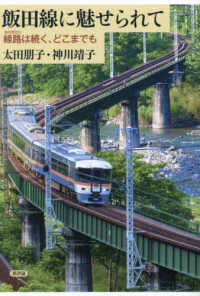Full Description
This volume will provide eco-socially-oriented science and environmental educators with a diverse set of examples of how science and environmental learning for students and their co-learner teachers can be enacted in ways which contribute to their understanding of, commitment to and capabilities towards, living for a more eco-socially just and, therefore, more sustainable world. Science and environmental learning is set within a challenging framework, one that entails critical, transdisciplinary learning and acting, and values all the human and other-than-human beings sharing Earth's rich, but finite, resources.The text asserts that ethical contemporary science and environmental education, which practitioners might find within science, technology, engineering, and mathematics (STEM), will have at centre-stage not merely more factual knowledge, but also the development of learners' affect and behaviour towards acting for eco-social justice. This will demand that learners more fully appreciate not only the necessity to transition swiftly to living within planetary boundaries, but also the requirements of ethical living—that humans share health and well-being more equally with their own and all other species.Further, the book proposes that eco-socially responsible science and environmental education must be set within a transdisciplinary and integral framework, one in which curriculum and pedagogy are embedded in everyday practice. In this transition project from unsustainable inequities to eco-social justice, teachers and community leaders need to work with their students/citizens in envisioning preferable futures, and developing shared knowledge, values, dispositions, courage and capabilities to work towards such futures, and in genuine attempts at affecting them.








